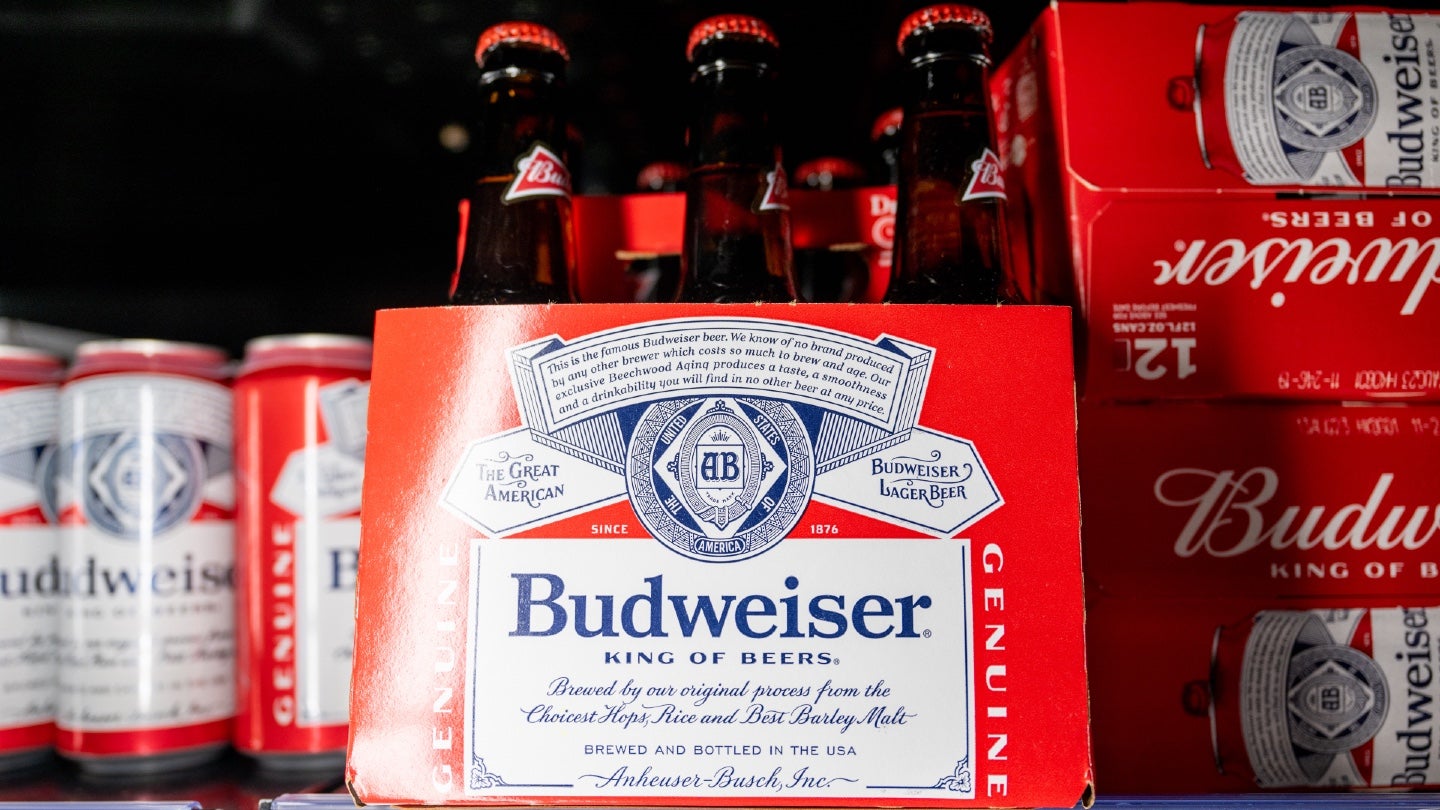
Each week, a deal is selected that illustrates the themes driving change in the sports industry. They may not always be the largest deals in value or those of the highest profile, but they tell us where the leading players are focusing their efforts and why. Our thematic deal coverage is driven by our underlying Disruptor data that tracks all major deals across our sectors.
The deal
Global soccer's governing body FIFA announced on June 8 the extension of its commercial tie-up with brewing giant Anheuser-Busch InBev (AB InBev) through its next two major events.
AB InBev’s popular Budweiser brand will serve as the official beer sponsor of the 2023 FIFA Women’s World Cup (WWC) in Australia and New Zealand and the men’s 2026 FIFA World Cup in Mexico, the US, and Canada.
The deal extension continues a relationship between FIFA and AB InBev that has lasted nearly 40 years.
Romy Gai, FIFA’s chief business officer, said: “As one of our longest-standing sponsors, AB InBev’s investment will benefit the game, as well as soccer development all over the world while bringing creativity and excitement to the experience that fans will have during our most iconic tournaments.”
How well do you really know your competitors?
Access the most comprehensive Company Profiles on the market, powered by GlobalData. Save hours of research. Gain competitive edge.

Thank you!
Your download email will arrive shortly
Not ready to buy yet? Download a free sample
We are confident about the unique quality of our Company Profiles. However, we want you to make the most beneficial decision for your business, so we offer a free sample that you can download by submitting the below form
By GlobalDataWhy it matters
While the relationship between FIFA and AB InBev has stood the test of time for close to four decades, it hit choppy waters during the 2022 edition of the men’s World Cup in Qatar.
The authorities in the Muslim state made a last-minute decision to ban the vast majority of in-stadia alcohol sales, thus vastly reducing both revenue for Budweiser and the brand’s physical marketing presence.
While it is illegal to drink in public or be drunk in public in the Muslim state of Qatar, it had been agreed by FIFA with AB InBev – so as not to vastly reduce the value of the sponsorship – that the rules would be relaxed during the tournament. Qatar 2022 authorities had signed a contract to that effect with FIFA – in terms of respecting the soccer body's commercial partners – in 2009.
However, just two days before the start of the World Cup, FIFA announced an alcohol ban at stadiums after bowing to pressure from Qatari officials.
As a result of that, AB InBev reportedly sought a $47.4-million reduction in its tie-up for this year’s WWC and for the 2026 men’s event.
Now, however, GlobalData Sport’s head of analysis and consulting, Conrad Wiacek, argues: “AB InBev’s renewal of its deal with FIFA as a World Cup sponsor through 2026 should come as no surprise, despite the issues around the Qatar tournament.
“With the next World Cup taking place in its key target market of North America, AB InBev will be looking to ensure that it makes up for any financial losses incurred by the last-minute ban which plagued the brand just days before the start of Qatar 2022 – where beer sales were prevented despite previous assurances that the partnership would not be impacted.”
Not only will the 2026 World Cup be held in significantly more favorable countries for AB InBev, but it will also feature more games than any previous edition – 104 fixtures, up from 64 at Qatar 2022.
In the days immediately following the Qatar authorities’ decision, it was reported that AB InBev potentially had grounds to sue FIFA, but that it decided to show restraint so as not to damage the long-term relationship.
“Given some of the issues that several AB InBev brands have had over the past year, most notably a [political] right-wing led boycott of the beer following its appointment of [US transgender actress] Dylan Mulvaney as a brand ambassador, the brewing giant will be hoping that a mega-event such as the World Cup will help in rebuilding its reputation among its core domestic audience,” adds Wiacek.
He goes on to say, however, that the Qatar 2022 debacle may well have impacted AB InBev’s long-term strategic thinking, around the possibility of future World Cups being held in other Islamic nations.
“Longer term, this may be the last deal between FIFA and AB InBev, especially if Middle Eastern Countries like Saudi Arabia continue to be linked to hosting the World Cup. AB InBev will be reluctant to get into an agreement without guarantees that they can access the audience – given the significant price tag that accompanies the partnership and the issues surrounding the last World Cup to be held in a Middle Eastern country.”
The detail
GlobalData Sport has cited the value of the previous tie-up between FIFA and AB InBev as being worth $150 million over nearly eight years (from early 2015 through the end of 2022), or $18.75 million a year. The new deal is estimated to be worth $80 million over four years, or $20 million a year.
The brewing giant follows global fast-food giant McDonald’s in extending a top-tier sponsorship with FIFA through 2026.
The top rung of FIFA’s sponsorship ladder also contains Adidas, Coca-Cola, Visa, and Hyundai-Kia.
The 2023 WWC will take place between July 20 and August 20.
More reading
- FIFA statement
- Qatar 2022 alcohol ban fallout
- FIFA commercial partners
Image: Brandon Bell/Getty Images



